Table of Contents
ToggleIn a world where everyone seems glued to their screens, the power of reading still reigns supreme. Imagine turning that passion into a career with an online master’s in reading and literacy. It’s like being the superhero of the literary world—saving struggling readers one book at a time!
With the flexibility of online learning, busy professionals can dive into the depths of literacy education without sacrificing their day jobs or binge-watching their favorite shows. Whether it’s transforming a classroom or working with families, this degree equips them with the tools to make a real difference. So why not turn those late-night reading marathons into a fulfilling career? After all, who wouldn’t want to be the one who helps others unlock the magic of words?
Overview of Online Masters in Reading and Literacy
An online master’s in reading and literacy focuses on developing advanced skills in teaching reading and fostering literacy. Programs typically emphasize evidence-based practices, curriculum development, and assessment strategies essential for effective reading instruction.
Many universities offer this degree format, allowing students to study at their own pace. Flexibility benefits those balancing professional responsibilities and personal commitments. Courses often cover topics such as literacy theory, instructional methodologies, and literacy interventions. Students gain knowledge relevant to diverse learning environments, including elementary and secondary education.
Graduates often pursue various roles, including literacy coaches, reading specialists, and curriculum developers. Each role contributes significantly to enhancing literacy among students. Many programs provide practical experiences or fieldwork, ensuring graduates are well-prepared for real-world challenges.
Networking opportunities arise through online forums, virtual seminars, and group projects. These connections can lead to collaborations with other educators and literacy professionals. Many institutions also host events focused on literacy advancement, further enriching the learning experience.
Accredited programs ensure high educational standards. Students engage with research-based resources and current literacy initiatives, promoting continuous professional development. The increasing emphasis on literacy skills in education makes this degree particularly relevant and valuable in today’s classroom settings.
Overall, an online master’s in reading and literacy enables educators to transform their passion for reading into a substantial career, ultimately benefiting countless students.
Benefits of Pursuing an Online Masters

Pursuing an online master’s in reading and literacy presents several compelling benefits for aspiring educators. It caters to the needs of those seeking to enhance their skills while balancing other commitments.
Flexibility and Convenience
Flexibility stands as a key advantage of online programs. Students often juggle careers and personal lives, so the ability to access coursework anytime proves invaluable. Busy professionals can tailor their study schedules to fit their individual routines. Online classes eliminate commuting time, allowing for more hours dedicated to learning. Convenience also extends to accessing resources, enabling immediate engagement with course materials. Many platforms provide interactive elements, promoting active participation.
Career Advancement Opportunities
Career advancement opportunities greatly increase for those earning an online master’s in reading and literacy. Graduates may qualify for positions such as literacy coaches and reading specialists. Various educational institutions actively seek candidates with advanced degrees to meet evolving literacy demands. Networking opportunities through online forums facilitate connections with potential employers. Many programs include internship components, enhancing practical experience and enhancing resumes. Higher education levels signal to employers a candidate’s commitment to literacy development, positioning them advantageously in the job market.
Key Components of the Curriculum
The online master’s in reading and literacy incorporates diverse elements to prepare educators for impactful roles. Core courses provide foundational knowledge while specializations offer opportunities for further expertise.
Core Courses
Courses include essential topics such as literacy theory, instructional methodologies, and assessment strategies. Each course emphasizes evidence-based practices that enhance reading instruction. For example, educators learn to develop effective reading interventions tailored to various student needs. Courses also cover the latest research in literacy, equipping graduates with skills to implement current standards in educational settings. Graduate-level projects often involve collaborative and practical applications, ensuring that students gain real-world experience.
Specializations and Concentrations
Many programs offer specializations tailored to specific interests within literacy education. Options may include literacy coaching, early childhood literacy, or technology integration in literacy practices. These concentrations allow educators to hone skills that align with their career aspirations. For instance, a focus on literacy coaching equips graduates with strategies to mentor fellow educators. Concentrations enhance marketability, addressing the evolving demands in literacy instruction and creating diverse career pathways. Networking opportunities arise through coursework, connecting students with professionals in their chosen focus areas.
Admission Requirements and Application Process
Admission requirements for an online master’s in reading and literacy vary by institution. Most programs mandate a bachelor’s degree from an accredited university. Transcripts from previous studies often must be submitted. Many universities also look for candidates with a minimum GPA, typically around 3.0. Additionally, some programs require a valid teaching license, particularly if the candidate does not have professional experience in education.
Prerequisites for Applicants
Applicants should review specific prerequisites for each program. Common requirements include official transcripts, a statement of purpose outlining career goals, and letters of recommendation from educational professionals. Some universities may ask for a resume that details relevant experience in teaching or literacy advocacy. Standardized test scores, though less common, might still be needed for certain institutions.
Tips for a Successful Application
Focusing on strong application materials enhances chances of acceptance. Start by crafting a compelling statement that highlights your passion for literacy and your commitment to education. Tailor letters of recommendation to reflect your strengths and experiences. Meeting application deadlines is critical, so keep a checklist of requirements to ensure nothing is overlooked. Lastly, contacting admissions counselors can provide insights and clarity on any specific queries you may have.
Top Online Programs for Reading and Literacy
Numerous online programs focus on reading and literacy education. These programs equip future educators with the skills needed to make a significant impact.
Program Comparisons
Several institutions offer distinct online master’s degrees in reading and literacy. Different programs vary in curriculum structure, coursework requirements, and specialization options. Some universities present intensive courses that cover advanced literacy strategies, while others prioritize practical experiences through internships. Flexibility in scheduling and pacing also differs among programs, making it essential for students to choose one that aligns with their lifestyle. Comparing tuition costs and financial aid availability aids in making informed decisions.
Accreditation and Reputation
Accreditation plays a crucial role in program selection, ensuring graduates meet industry standards. Programs accredited by recognized organizations help establish credibility in the job market. Schools maintain strong reputations due to faculty expertise, student support services, and successful alumni outcomes. Researching institutional rankings and reviews provides insight into program quality. Engaging with online communities can yield firsthand experiences from current and former students, further guiding prospective applicants.
Pursuing an online master’s in reading and literacy offers a transformative opportunity for educators passionate about fostering a love for reading. This degree not only equips them with vital skills but also opens doors to diverse career paths in literacy education. With the flexibility of online learning, busy professionals can seamlessly integrate their studies into their lives while making a significant impact in their communities.
As literacy demands continue to evolve, graduates will find themselves well-prepared to meet these challenges head-on. By committing to this educational journey, they’ll empower countless students to unlock the joys of literature, making a lasting difference in the world of education.






